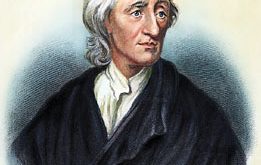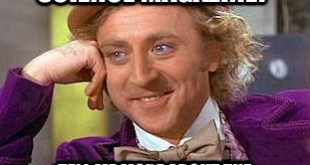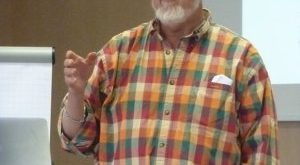My philosophy of economics A critique yours truly sometimes encounters is that as long as I cannot come up with some own alternative to the failing mainstream theory, I shouldn’t expect people to pay attention. This is, however, to totally and utterly misunderstand the role of philosophy and methodology of economics! As John Locke wrote in An Essay Concerning Human Understanding: The Commonwealth of Learning is not at this time without Master-Builders,...
Read More »The LOGIC of science vs the METHODS of science
The LOGIC of science vs the METHODS of science [embedded content]
Read More »Postmodern mumbo jumbo
Fyra viktiga drag är gemensamma för de olika rörelserna: Centrala idéer förklaras inte. Grunderna för en övertygelse anges inte. Framställningen av läran har en språklig stereotypi … När det gäller åberopandet av lärofäder råder samma stereotypi — ett begränsat antal namn återkommer. Heidegger, Foucault, och Derrida kommer tillbaka, åter och åter … Till de fyra punkterna vill jag emellertid … lägga till en femte: 5. Vederbörande har inte något väsentligen nytt att...
Read More »RCTs — gold standard or monster?
RCTs — gold standard or monster? One important comment, repeated — but not unanimously — can perhaps be summarized as ‘All that said and done, RCTs are still generally the best that can be done in estimating average treatment effects and in warranting causal conclusions.’ It is this claim that is the monster that seemingly can never be killed, no matter how many stakes are driven through its heart. We strongly endorse Robert Sampson’s statement “That...
Read More »Revisiting the foundations of randomness and probability
Revisiting the foundations of randomness and probability Regarding models as metaphors leads to a radically different view regarding the interpretation of probability. This view has substantial advantages over conventional interpretations … Probability does not exist in the real world. We must search for her in the Platonic world of ideals. We have shown that the interpretation of probability as a metaphor leads to several substantial changes in...
Read More »On the impossibility of objectivity in science
On the impossibility of objectivity in science Operations Research does not incorporate the arts and humanities largely because of its distorted belief that doing so would reduce its objectivity, a misconception it shares with much of science. The meaning of objectivity is less clear than that of optimality. Nevertheless, most scientists believe it is a good thing. They also believe that objectivity in research requires the exclusion of any ethical-moral...
Read More »RCTs — a method in search of ontological foundations
RCTs — a method in search of ontological foundations RCTs treat social reality as though some simulacrum of laboratory conditions was a feasible and appropriate scientific method to apply, but in development research, unlike laboratory condition treatments, interventions are not manipulations of individuated and additive or simply combinable material components … but rather intervention into material social relations. While for the former, assuming away or...
Read More »What makes collective action more likely?
What makes collective action more likely? [embedded content]
Read More »Why I am not a Bayesian
Why I am not a Bayesian What I do not believe is that the relation that matters is simply the entailment relation between the theory, on the one hand, and the evidence on the other. The reasons that the relation cannot be simply that of entailment are exactly the reasons why the hypothetico-deductive account … is inaccurate; but the suggestion is at least correct in sensing that our judgment of the relevance of evidence to theory depends on the perception...
Read More »The vain search for The Holy Grail of Science
The vain search for The Holy Grail of Science Traditionally, philosophers have focused mostly on the logical template of inference. The paradigm-case has been deductive inference, which is topic-neutral and context-insensitive. The study of deductive rules has engendered the search for the Holy Grail: syntactic and topic-neutral accounts of all prima facie reasonable inferential rules. The search has hoped to find rules that are transparent and...
Read More » Heterodox
Heterodox








